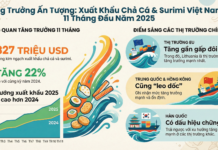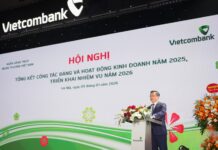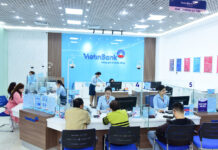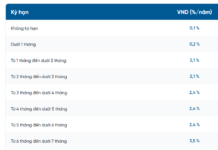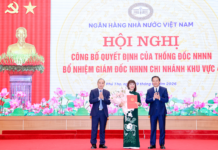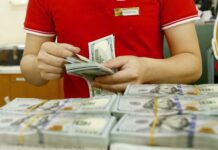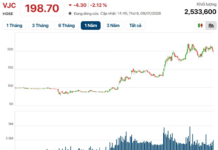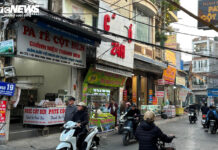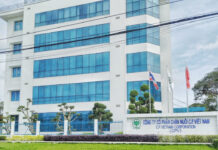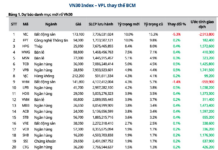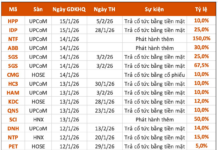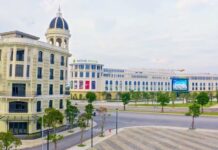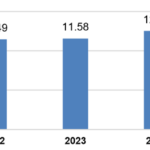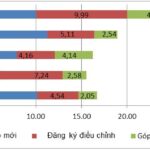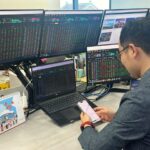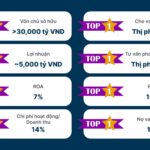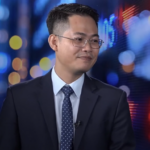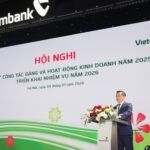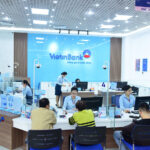The first half of 2025 witnessed a remarkable breakthrough in foreign investment attraction for Hanoi, with a total capital of over $3.67 billion, a 216% increase compared to the same period in 2024. This achievement propelled Hanoi to the top position nationwide, outperforming many other dynamic localities.
This remarkable result not only reflects Hanoi’s attractiveness in investment but also demonstrates the city government’s agility and proactive approach in seizing investment opportunities in the new context.
NOTABLE HIGHLIGHTS
The most notable aspect of this overall success lies not in new projects but in the trust of existing investors.
Out of the total attracted capital, $3.143 billion came from 89 projects registering for capital increase. This accounts for nearly 86% of the total foreign investment. It indicates that international corporations operating effectively in Hanoi are not only satisfied with the business environment but also recognize the vast potential to further expand their scale and deepen their investment in the city.
Notable large-scale projects include those by Gamuda Group (Malaysia), such as the Yen So Park Construction Project and the mGamuda Gardens Urban Area Project, as well as new urban area projects in Nam Thang Long and Le Trong Tan – Parkcity Hanoi…
Along with the growth of such large-scale projects, foreign investment attraction in the first six months also witnessed a diversification of investment sources. Strategic partners from Malaysia, Singapore, Japan, China, South Korea, and Taiwan (China) participated, demonstrating that Hanoi’s appeal extends beyond traditional partners and has strongly resonated with the Asian investment community.
In addition to impressive registered capital attraction, foreign investment disbursement in the first half of 2025 also showed remarkable efficiency in converting registered capital into substantive capital for production and business activities, amounting to $1.46 billion.
According to Mr. Le Trung Hieu, Deputy Director of the Hanoi Department of Finance, one of the most prominent and distinct features of Hanoi’s foreign investment attraction, compared to many other localities, is the city’s significant advantage in real estate and services. Real estate accounts for 36.54%, and trading goods and commerce services account for 12.43% of the total cumulative capital, reflecting Hanoi’s role as a major urban center.
“Notably, the development of professional scientific activities and R&D accounts for 12.4% of the total capital, indicating Hanoi’s strong potential in research and consulting activities. Although the processing and manufacturing industry still accounts for a considerable proportion, Hanoi is shifting towards high-tech orientations such as chip manufacturing, semiconductors, AI, and IoT, distinct from conventional labor-intensive processing industries in other provinces,” emphasized Mr. Hieu.
ATTRACTION BASED ON TRUST AND A SOLID FOUNDATION
Hanoi’s breakthrough results are not accidental but are built on a foundation of multiple factors that have been cultivated over an extended period, according to the Hanoi Department of Finance.
First and foremost is investor confidence. The continuous capital increase in existing projects is the most vivid testament to the city’s investment environment. This indicates that investors not only reap profits but also perceive stability in policies, timely support from the government, and a sustainable development vision for the future.
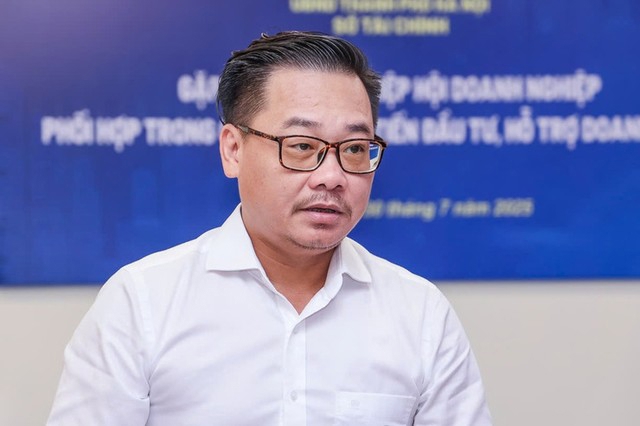
Hanoi’s strategic geographical location and increasingly synchronized infrastructure are also key advantages in attracting investors. Hanoi serves as a gateway and hub for goods and services with the surrounding provinces and regions. The transportation system, including radial highways, Noi Bai International Airport, and ongoing ring road and urban railway projects, forms an efficient logistics network, reducing costs and time for businesses.
The city’s abundant and high-quality human resources act as a “magnet” for high-value-added technology and service projects. With hundreds of universities, colleges, and research institutes, Hanoi provides the market with a skilled workforce, especially in technical fields, information technology, and scientific research. This is a core element in realizing Hanoi’s ambition to become a center for innovation.
Additionally, the city’s commitment to continually improving the business investment environment is unwavering. Efforts to reform administrative procedures, promote information technology applications, ensure transparent regulations, and maintain open dialogue channels to address businesses’ challenges have created an increasingly favorable, safe, and equitable business environment.
Lastly, Hanoi’s vast domestic consumer market, with a population of over eight million and steadily rising per capita income, provides a solid foundation for investors’ peace of mind in production and business. The potential for urban, commercial, financial, and tourism development remains substantial, offering countless opportunities for domestic and foreign investors.
THE CAPITAL LAW AND A HIGH-TECH VISION
Looking ahead, Hanoi has immense room to continue its remarkable performance in attracting foreign investment.
The Capital Law No. 39/2024/QH15, which took effect in late June 2024, holds tremendous significance in providing a new legal framework and strong impetus for Hanoi’s investment attraction.
According to Mr. Hieu, the Law grants Hanoi specific and superior mechanisms and policies, allowing the city greater autonomy and flexibility in issuing investment incentive policies, land management, and planning. This means Hanoi can “tailor” or, in other words, be flexible in crafting attractive policies to compete with major investment hubs in the region to attract strategic investors, particularly leading multinational corporations worldwide.
Notably, the Resolution of the City People’s Council on attracting strategic investors (passed on July 9, 2025) has created a solid legal corridor to orient and prioritize areas where the city wants to focus its investment efforts. It ensures the efficient use of resources and a sharp focus.
In this direction, Hanoi will selectively attract investment, prioritizing high-tech, environmentally friendly projects with technology transfer commitments and creating spillover effects, linking with domestic enterprises, such as smart city solutions, green infrastructure, renewable energy, high-tech waste treatment, chip manufacturing, semiconductors, AI, and IoT. The goal is not just to attract capital but also to attract knowledge, technology, and talent.
Moreover, following the merger and the implementation of a two-level government, Mr. Hieu believes that Hanoi will gain stronger momentum to boost foreign investment attraction.
“Optimizing resources through the merger of administrative units and streamlining the government apparatus will reduce redundancy and improve management and administration effectiveness,” he said. “Expanding the development space will create additional clean land attractive to investors, especially in the outskirts. Furthermore, enhancing governance capabilities with a more streamlined mechanism will shorten processing times and improve business services. Synchronized infrastructure connections over a more comprehensive range will facilitate the movement of goods and people and promote production and business activities.”
Another unique advantage of Hanoi is its cultural depth. With 1,350 craft villages, including more than 300 traditional craft villages, Hanoi is a “city of a hundred trades” like no other. This is not only a tourism asset but also an economic resource, with an annual export turnover of over $250 million, and a cradle of creativity. Efficiently leveraging this resource will create products and services with a strong identity and high added value.
Attracting FDI in the Past 7 Months Surpasses $24 Billion, Up 27.3% Year-on-Year
As per the latest statistics released by the Foreign Investment Agency, foreign investment registered in Vietnam as of July 31, 2025, including newly registered, adjusted, and contributed capital, and share purchases by foreign investors, amounted to an impressive $24.09 billion, marking a significant 27.3% increase compared to the same period last year.
What Will Propel New Capital into the Vietnamese Stock Market?
With the anticipated upgrade of the stock market in September, Vietnam is poised to attract foreign capital, particularly from financial institutions and foreign investment funds.
Mr. Tran Hoang Son (VPBankS): VN-Index Poised for New Uptrend After Correction
“It is quite normal for the VN-Index to experience a correction after a strong rally, and this pullback is likely a result of short-term profit-taking,” said Tran Hoang Son, Market Strategy Director at VPBank Securities (VPBankS), during the Vietnam and the Indices show on August 4th. He added, “The index is fully capable of entering a new uptrend.”





